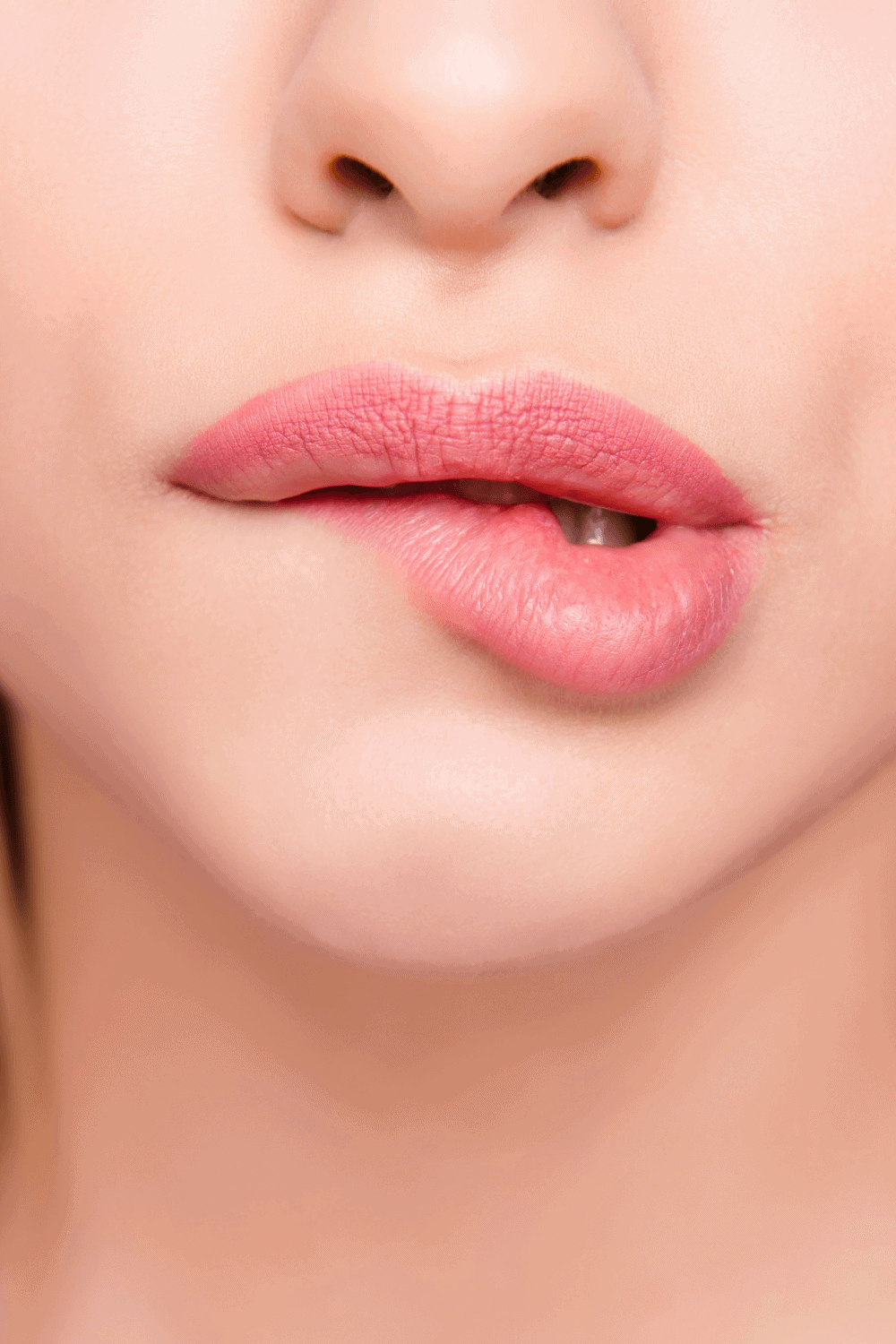
It’s been awhile since I’ve shared a post on autoimmune diseases. Sometimes I hesitate to share more about how I manage my two autoimmune diseases with as many natural remedies as possible, because I just don’t want to ever suggest anything that doesn’t work for someone else – or makes their symptoms worse. That would break my heart.
But, the alternative is not sharing solutions I have found that actually do make a difference – and just might make a difference for you, too. So, since I’ve been getting some really positive feedback on my post on remedies for dry eyes, particularly related to Sjogren’s, I thought I’d share this sister post on things we can do to help with dry mouth, too.
How Is Dry Mouth Connected to Sjogren’s?
I didn’t realize how connected everything was before battling Sjogren’s. I guess I didn’t pay enough attention in Science class. Okay, okay, I definitely didn’t pay enough attention in Science class.
Turns out, when our immune system attacks the glands that make tears, it also attacks the glands that make saliva, which effects our eyes, mouth, sinuses, and all the way down our esophagus and even into our stomach.
With a few small tweaks here and there, you can start to see real improvement in your body’s ability to create more moisture or at least manage the symptoms in a more comfortable way.
What’s the Deal with Sjogren’s and Dry Mouth?
The dry mouth feeling you get when you’re super dehydrated and hiking in full summer heat with no shade ain’t got nothin’ on the dry mouth people with Sjogren’s feel all the time. It takes a little while to adjust to a mouth so dry it feels like you’ve been hiking in the Sahara with no water. In fact, it can get so dry – you get collateral damage, like tooth decay, a swollen tongue and mouth sores.
Raise your hand if you too hate the dentist now that your mouth is a ticking time bomb for dental issues!
Remedies for Dry Mouth:
I wish the solution was just to drink more water. All the water. But, those of us with Sjogren’s have been there, drank that, and pretty soon you’re ready for added zones of defense against the dry mouth brigade.
Especially once you start to realize that the damaging effects of dry mouth extend beyond just feeling like you have a wad of cotton balls in your mouth.
Luckily, there are ways to help reduce dry mouth and help protect your teeth from decay. For more tips on protecting your oral health and taking care of your mouth and teeth with Sjogren’s, check out this post. For dry mouth specific products, here is what I use and have seen actual results with. Affiliate links are used.
1. Use a Humidifier:
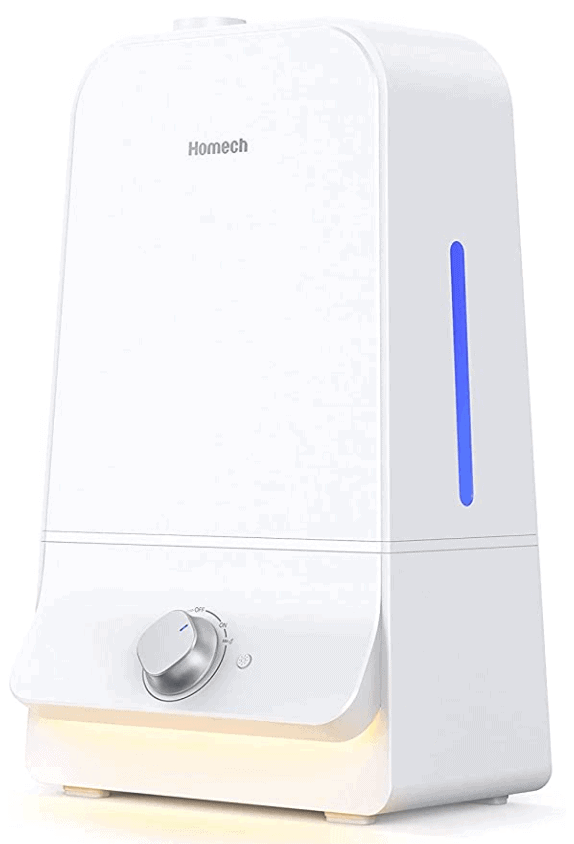
Yes, this is also a big tip from my post on reducing dry eyes, so you’ll check two boxes with this one. I think running a cold mist humidifier every night has been one of the best investments in helping to increase the moisture level in my eyes, mouth, sinuses, etc.
This one has an extra large tank, so I can go more days without refilling. And, a dial for increasing or decreasing the steam level helps me customize it to how my eyes are feeling that day (or night). But, it is on the larger side, so check the size before you buy. It doesn’t really matter which cold air humidifier you get, so long as it has good reviews and will fit on your nightstand table. If you notice moisture on the surface of your nightstand, you can put a hand towel under the humidifier, which is what I do.
Just don’t forget to descale if you see build up inside. Which you will. That’s just a given with any humidifier.
2. Use Biotene Mouthwash:
I know it’s not the cleanest product, but so far, it’s been the best one in terms of effectiveness. Biotene is a mouth wash you use after brushing your teeth that helps coat the mouth with manmade forms of the mucus secretions normally produced by people who don’t have decreased production from Sjogren’s. Yes, sounds gross, but it is important.
People who have dry mouth for any other reason will find Biotene mouthwash helpful as well. In fact, all of these tips work for dry mouth from anything – dehydration, side effects of cancer treatments, etc.
I do also rotate with Listerine, because I feel like Listerine really helps with bacteria build-up and reduces incidences of mouth inflammation.
3. Use Biotene Mouth Spray:
On the go? Dry mouth so distracting you’re having a hard time staying out for very long? Grab the Biotene mouth spray and get on your way.
I don’t love mouth sprays in general, but this one is a good friend.
4. Use Natural Toothpaste:
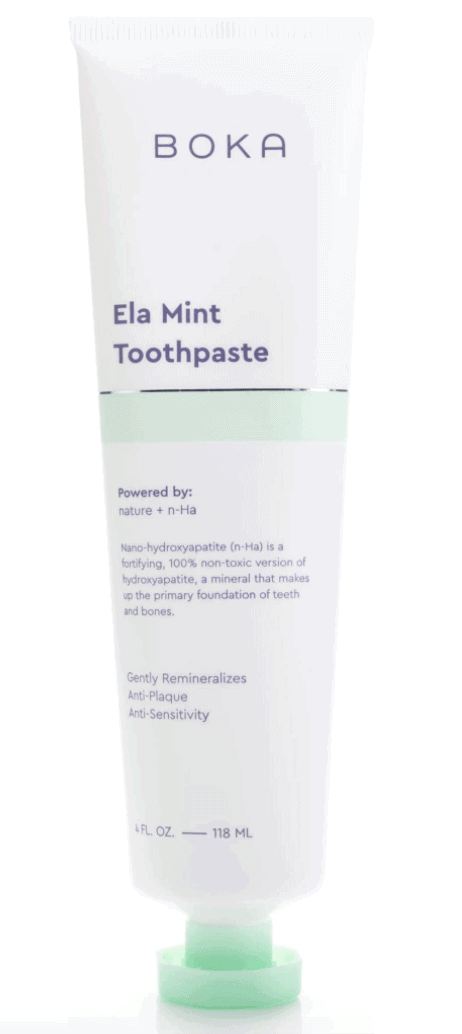
It’s really important to limit the amount of toxins ingested, as any person with an autoimmune disease has an decreased ability to flush them out, so use a natural toothpaste like Boka, which is 100% non-toxic, 100%bBiocompatible with antioxidants and prebiotics, free from SLS, parabens, and artificial flavors & colors and protects teeth with nHa, the mineral that makes up tooth enamel.
If you can’t get Boka, you’ll need a natural toothpaste with fluoride. I know, I’ve read all about the dangers of fluoride and I am not recommending that you drink cups of it, however, I have personally noticed an increase in cavities every time I see the dentist after switching over to a toothpaste that doesn’t have fluoride or nHa.
However, since using Boka, I have seen the dentist and they actually said that some areas they were watching did not get any worse at all. So, we continue to watch them – but that just means more time before I have to prepare myself emotionally for a crown. Yikes.
I’ve used both the mint and the ginger Boka and I definitely recommend the mint to start.
5. Use a Gentle Toothbrush & Water Flosser:

One tip I picked up recently was to use a water flosser at home. This replaces the old school dental floss which I find to cause a lot of bleeding and pain to my gums. The achiness and inflammation I experience every time I floss just adds to my overall discomfort – but good news – you can use a water flosser at home for the same or better results and much less discomfort.
Oh, and don’t forget to clean your tongue, too – to help reduce bacteria in the mouth.
I do also really like the Boka floss, though, and I definitely think it does a better job than the floss I was using before. Score.
6.Take Cod Liver Oil:
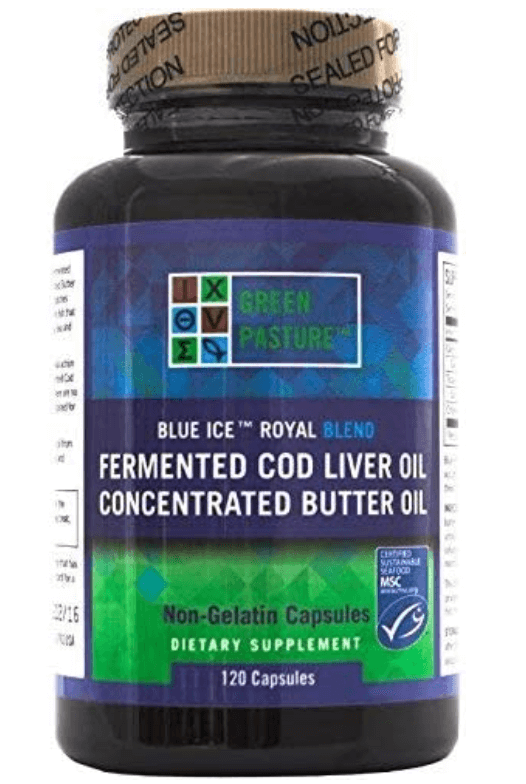
Sounds disgusting. I’m even allergic to fish and seafood and I take this stuff. Every day.
There’s tons of research on how it helps protect, strengthen and even remineralize teeth. There’s also research that suggests we should be taking a different form of cod liver oil that doesn’t ever go rancid. Unfortunately for me, I find the taste so prohibitive, I have to take it in this pill form with the x butter factor which increases efficacy and absorption.
Take it with food, before and after, please. If you can stomach the liquid forms, you might be able to take a different one, but this is the one I take. I also included it in my post on the 10 supplements I take every day for inflammation.
So, if you take this – that means you are helping with oral health and also decreasing general inflammation in your body. Win win.
7. Use Lozenges:
I picked up another tip from a great dentist who said chew sugar-free gum to increase saliva production, but if I chew gum for very long, it tires out the muscles in my face. I do chew gum, though, and I choose this one when I do. I like the cinnamon and bubble gum flavors, personally.
I also learned in a lovely Sjogren’s Reddit group that lozenges can have a similar effect as gum. I remembered how much I liked the ginger lozenges I used when I was pregnant – and ginger is a powerful anti-inflammatory, too, so it seemed like a good match.
I also really like honey and that’s anti-microbial. Not sure how science-y this whole thing is, but I’ll tell you what, it works. Just remember to brush your teeth and/or swish with water regularly when using lozenges, so nothing sits on your teeth.
There are also dry mouth specific mints and lozenges that you can buy – but I haven’t tried those.
8. Stop Smoking:
I know, but I have to say it. If you’re still smoking, you are making the situation worse. Please stop smoking, for many reasons in addition to decreasing dry mouth symptoms.
9. Drink More Water:
The cornerstone of every diet program, every exercise program, every health regiment, is always – drink more water. So, grab yourself a large, refillable water bottle that is stainless steel or BPA free plastic and DRINK MORE WATER.
10. Use a Straw:
Here’s another fun tip that can make a big difference! Liquids like coffee and other beverages can dry out your mouth, so decreases this effect by using a straw! This also means less liquid contact with your teeth, which can protect your teeth over time.
I have tried a lot of reusable straws lately and my favorite have been these silicone straws. They are soft, but really last a long time, and you can pack them without any concern that they’ll break like the glass ones.
*****
Have you tried any of these tips for dry mouth? I’d love to know if you have more tips that I haven’t included here!
Also, if you feel you have tried everything, be sure to mention it to your doctor and/or dentist. There are prescriptions that can also help if your saliva production is so low that you are having a lot of pain and decay. Be your own best advocate!
If you are looking for more natural remedies from a normal person like me who just tries a ton of things until something works, you might also like these posts:
- 7 teeth whiteners for sensitive teeth that work!
- 12 Health Benefits to using Castor Oil Packs
- Best Mascaras for Sjogren’s
- 5 Natural Remedies for Insomnia
You got this,
E
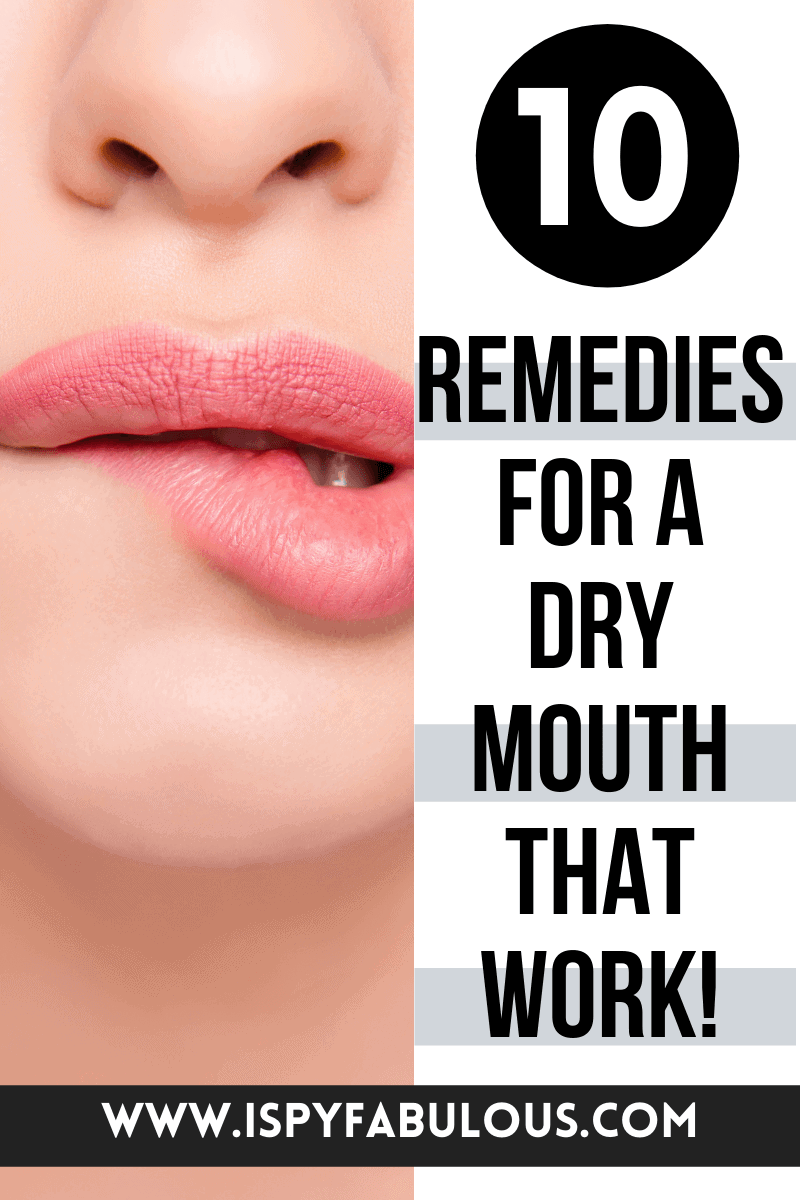
I tried some lozenges in the past and they burned my mouth. Pretty certain ginger was one of the culprits.
Author
Ginger is a little spicy, but I have never had it burn. I wonder what was in those lozenges! Try some different ones for sure – or just use whatever works for you. Anything that causes pain is not a good remedy!